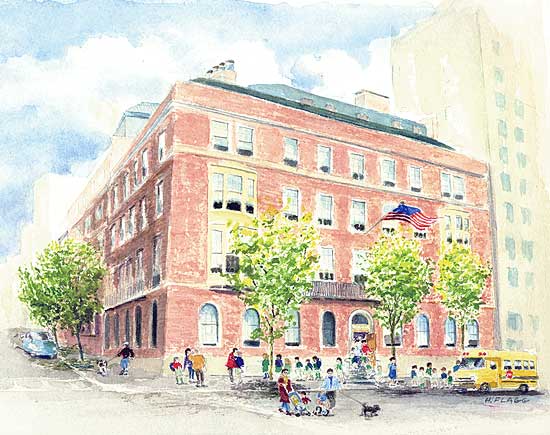MY EXPERIENCES

I attended an all girls private school, The Chapin School, in the 10028 zip code, a coveted location in the Upper East Side, for thirteen years. The only type of health class that was offered was a two-month program required of all sixth graders. This class covered everything from learning about menstrual cycles, sex, and the importance of a healthy diet and exercise. Every girl had to give a presentation about either a vitamin or an STD. These five-minute presentations required a poster with all your research that would later be hung in the science hallway. The HIV/AIDS presentation was the only time the topic was covered, what we learned about this deadly virus was from a twelve year old and her poster. I learned more about HIV in my AP Biology class in my senior year. We spent one class discussing the methods of how a retrovirus spreads once inside the body. I know about the science of HIV, that it is an opportunistic virus that weakens one’s immune system by killing T lymphocytes. We never learned about modes of transmission and what puts someone at risk of infection. It was never made public where students should go if she wanted more information about HIV/AIDS, the nurse did not display any posters or pamphlets on the matter.
On World AIDS Day, December 1st 2006, Chapin’s Gay-Straight Alliance covered art in one of the Upper School’s hallways. On some of the black construction paper were facts about AIDS and celebrities who have been stricken with the virus. There was information on Queen’s front man Freddy Mercury, statistics about Africa, and a short biography of Magic Johnson. None of the facts focused on AIDS in New York City. The administration fought GSA on the issue of publishing facts about AIDS. Apparently many Middle School parents were opposed to having their daughter’s read about AIDS.
Every Wednesday all Upper School students must attend a lecture series featuring various guest speakers. This winter a Chapin Alumna, Katie Bollbach, came back to tell us about her ventures in Zambia, Africa. She took a year off from Berkeley to volunteer at a refugee camp. Out of the thousands of refugees living there only forty people knew they had HIV and only one was publicly open about their status as a person living with HIV. With the help of Berkeley students, she created FACE AIDS, an organization bringing awareness about AIDS to Africans through support groups and information sessions. FACE AIDS persuaded people to get tested for HIV and helped clear the stigma that comes with a positive diagnosis.